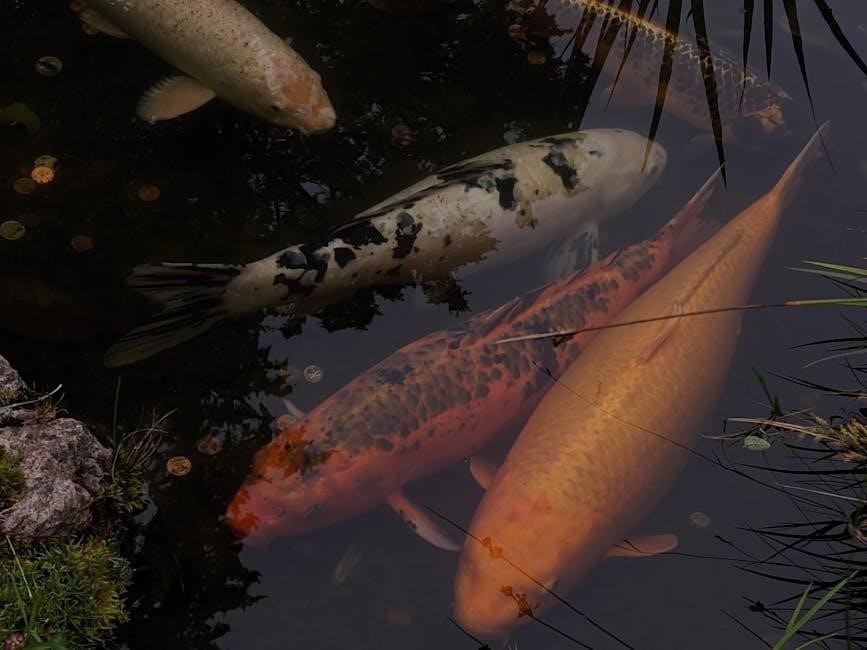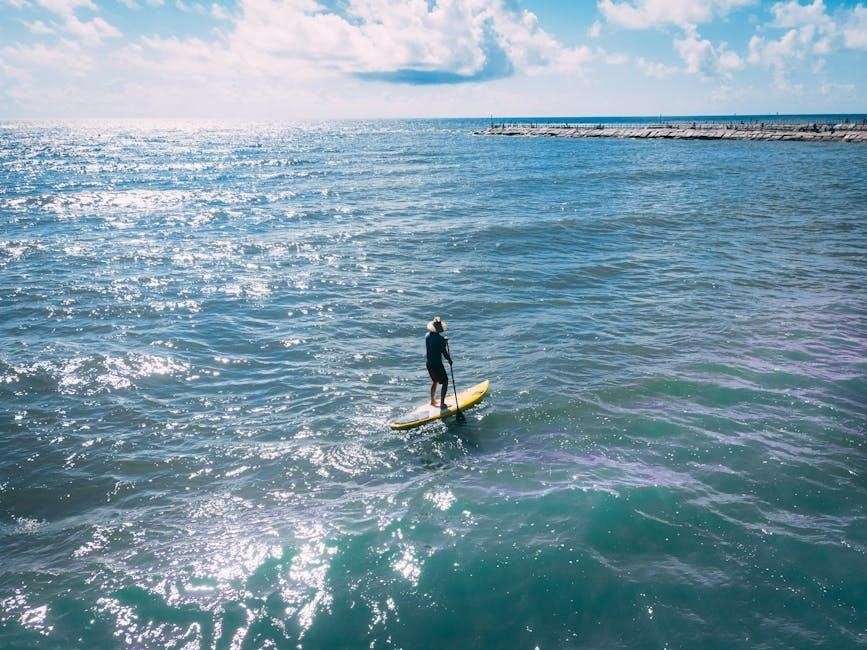A Texas Fishing Guide License is essential for anyone leading fishing trips in state waters. It ensures compliance with regulations, promoting sustainable fishing practices. Guides must meet specific requirements, including age, residency, and certifications. This license helps maintain Texas’s rich fishing heritage while supporting eco-friendly tourism and outdoor recreation opportunities for anglers of all skill levels.

1.1 Importance of the License
Obtaining a Texas Fishing Guide License is crucial for anyone intending to lead or assist fishing trips in Texas waters. This license ensures that guides operate legally and responsibly, adhering to state fishing regulations. It helps protect fish populations and habitats by promoting sustainable fishing practices. Additionally, the license serves as proof of compliance with safety and environmental standards, ensuring that guides are qualified to provide safe and enjoyable experiences for anglers. The license also supports conservation efforts by generating revenue for fisheries management and habitat preservation. Furthermore, it verifies that guides have the necessary knowledge and training to navigate Texas waters effectively. Overall, the Texas Fishing Guide License is essential for maintaining the integrity of the fishing industry and preserving the state’s natural resources for future generations. By requiring this license, Texas ensures that fishing activities remain sustainable and enjoyable for both residents and visitors. The license also helps regulate the industry, preventing overfishing and promoting ethical fishing practices. In summary, the Texas Fishing Guide License is a vital tool for conservation, safety, and the responsible management of the state’s aquatic resources.
1.2 Types of Licenses Available
Texas offers several types of fishing guide licenses to accommodate different guiding operations. The All-Water Fishing Guide License is the most comprehensive, allowing guides to operate in both freshwater and saltwater environments. For those focusing exclusively on inland waters, the Freshwater Guide License is available, while the Saltwater Guide License is tailored for coastal and marine guiding activities. Additionally, there is a Youth Guide License for individuals under the age of 18 who assist experienced guides under direct supervision. Temporary or charter guide licenses are also offered for short-term operations or specific events. Each license type requires applicants to meet specific eligibility criteria, including age, residency, and experience. The Texas Parks and Wildlife Department (TPWD) outlines these requirements to ensure guides are qualified and knowledgeable about local ecosystems. Understanding the differences between these licenses is crucial for aspiring guides to choose the one that best fits their needs. By offering varied licensing options, Texas supports a diverse range of fishing guide services while maintaining high standards for professionalism and environmental stewardship. This structured approach ensures that guides are well-prepared to provide safe and enjoyable experiences for anglers in Texas’s abundant waterways.

Legal Requirements for Obtaining the License
Obtaining a Texas Fishing Guide License requires meeting specific legal criteria. Applicants must be at least 18 years old and provide proof of residency in Texas for at least six months. They must also demonstrate 360 days of experience in saltwater fishing, with 90 days earned in the last three years. These requirements ensure guides are qualified and knowledgeable, fostering safe and responsible fishing practices in Texas waters.

2.1 Age Requirements
In Texas, the minimum age to apply for a Fishing Guide License is 18 years old. Applicants must provide valid identification to verify their age. This requirement ensures that only mature individuals, capable of handling the responsibilities associated with guiding fishing trips, are licensed. The age criterion is non-negotiable and applies to both residents and non-residents. Additionally, applicants must demonstrate a minimum of 360 days of experience in saltwater fishing, with at least 90 of those days occurring within the last three years. This experience requirement further ensures that guides possess the necessary knowledge and skills to lead safe and effective fishing excursions. By setting a clear age and experience threshold, Texas aims to maintain high standards for fishing guides, ensuring that clients receive expert guidance and that the state’s natural resources are protected. These age requirements are strictly enforced, and no exceptions are made for individuals under the age of 18. The combination of age, experience, and proper certification creates a robust framework for licensing fishing guides in Texas.
2.2 Residency Requirements
In Texas, residency requirements play a crucial role in determining the eligibility and cost of obtaining a Fishing Guide License. To qualify as a Texas resident, an individual must have lived in the state for at least six months prior to applying for the license. This residency status affects the fees and documentation required during the application process. Non-residents, on the other hand, face higher licensing fees compared to residents, reflecting the state’s effort to balance access for both locals and visitors. Residency is verified through official documents such as a Texas driver’s license, voter registration card, or utility bills, ensuring the accuracy of the applicant’s status. Understanding and meeting these residency requirements is essential for guides to operate legally within Texas waters, ensuring compliance with state regulations and supporting the conservation of natural resources. By adhering to these guidelines, Texas aims to maintain fair and sustainable fishing practices for all stakeholders involved. Proper documentation and adherence to residency criteria are vital for a smooth licensing process, enabling fishing guides to contribute positively to the state’s outdoor recreational activities. Residency requirements are a key component of the licensing framework, ensuring that all applicants meet the necessary standards set by Texas authorities. This structured approach helps in managing the state’s fishing resources effectively while providing clear guidelines for aspiring fishing guides.
2.3 Experience and Eligibility
To be eligible for a Texas Fishing Guide License, applicants must meet specific experience requirements. They must be at least 18 years old and demonstrate a minimum of 360 days of experience on saltwater, with at least 90 of those days earned in the last three years. This ensures that guides possess the necessary knowledge and skills to safely and effectively lead fishing trips. Additionally, applicants must pass a physical examination to confirm their fitness for the demands of the role. They are also required to complete a safety course approved by the Texas Parks and Wildlife Department, covering essential topics such as navigation, emergency procedures, and environmental stewardship. Furthermore, applicants must provide documentation of their experience, such as logs of time spent on the water or letters of verification from previous employers. These requirements aim to ensure that fishing guides are well-prepared to provide safe and enjoyable experiences for their clients while promoting sustainable fishing practices. By setting these standards, Texas aims to maintain the integrity of its fishing industry and protect its natural resources for future generations. The combination of experience, training, and eligibility criteria helps to uphold the high standards expected of fishing guides in the state.
Necessary Certifications
Obtaining a Texas Fishing Guide License requires specific certifications, including CPR and First Aid training from a department-approved organization. Additionally, a department-approved boater safety course is mandatory. These certifications ensure guides can handle emergencies and promote sustainable fishing practices. They are also essential for obtaining the U.S. Coast Guard license required for operating fishing charters.
3.1 CPR and First Aid Certification

CPR (Cardiopulmonary Resuscitation) and First Aid certification are critical requirements for obtaining a Texas Fishing Guide License. These certifications ensure that guides are equipped to handle medical emergencies that may arise during fishing trips. The training covers essential skills such as wound care, injury assessment, and cardiac arrest response. Guides must complete these courses through a department-approved organization, such as the American Red Cross. The certification process typically includes both theoretical and practical components, ensuring a comprehensive understanding of emergency procedures.
The importance of CPR and First Aid certification lies in the ability to provide immediate care in remote fishing locations, where professional medical help may not be readily available. This not only enhances safety but also builds trust and confidence among clients. Additionally, these certifications are often required for obtaining the U.S. Coast Guard license, which is necessary for operating fishing charters.
Renewal of these certifications is typically required every two years to stay updated with the latest medical practices and techniques. By maintaining these credentials, fishing guides demonstrate their commitment to safety and professionalism, ensuring a secure and enjoyable experience for anglers of all skill levels. This requirement is a cornerstone of the licensing process, emphasizing the importance of preparedness in the fishing industry.